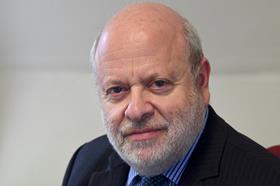During a recent discussion among claimant and defendant lawyers arising from the Ministry of Justice’s call for evidence on strategic litigation against public participation (SLAPPs), a defendant solicitor reported on a case in which an Italian lawyer was instructed to defend a libel claim. The Italian lawyer reported that the costs would likely be around €25,000. ‘What? Are you sure you haven’t left off a couple of noughts?’ No, the costs really would be about 100 times less than if brought and contested in London (well, maybe 50-100 times less, depending on how the case developed).

This is confirmed in the SLAPP research literature. Continental costs are reported to be around the same level as the Italian quote. And yet, according to press reports, the ‘Wagatha Christie’ libel trial is likely to end up at around £2m in costs.
How has this vast difference in national costs systems come about? The possible reasons are beyond this article – the functioning of our adversarial system, the hourly rate of certain London lawyers? I am sure there is research on the topic. Rather, I wonder how we as citizens can debate this question openly.
Certain beliefs are buried so deep within nations that it is difficult for them to be discussed sensibly. For instance, the National Health Service is free at the point of delivery. That is a sensational idea. But it costs a great deal and there are constant questions about efficiency. On the continent, there are systems where citizens pay for health services and claim payments back through an intermediary agency. Which is better, and should we change?
Similarly, in our legal jurisdiction we love the adversarial system. The notion runs profoundly through our systems. Our democracy, for instance, is based on Her Majesty’s government and Her Majesty’s loyal opposition. We are convinced it leads to truth and justice.
But the anecdote about costs makes me wonder whether it would be possible to have a reasoned public debate about the merits of, for instance, the adversarial against the inquisitorial (or other) systems. Nothing should be triggered by an anecdote, but is it possible to envisage a public debate? Or must we assume until the end of time that our system is the best because… it is ours?
Another recent event further prompted this same train of thought: the publication of the EU’s annual justice scoreboard. This provides comparable data on the independence, quality and efficiency of national justice systems. We withdrew from the exercise long before we left the EU. The almost prehistoric (it now seems) justice secretary Chris Grayling said in 2014 that the UK had no intention of becoming part of a one-size-fits-all EU justice system.
I raise the scoreboard in this context because it provides an opportunity to see how our own justice system is faring against comparable neighbours. I do not place absolute faith in the figures. As with the debates already mentioned, there will doubtless be endless disputes about whether comparisons are being made of like with like, how statistics are categorised and counted, and so on.
Nevertheless, fairly broad trends emerge. For instance, the Nordic countries, and also the Baltic states, generally feature well in the statistics about length of time for resolution of court cases. Why? What are they doing right, and can we copy it?
Even more interestingly, the same countries generally feature as having the lowest number of lawyers per 100,000 inhabitants: between 50 and 100 per 100,000. (I calculate our own figure, using England and Wales, as around 300 per 100,000, which is well below Greece and Italy, which stand at around 400 per 100,000.) Those trends and relationships are interesting, both in themselves but also as to what they tell us about our own arrangements and how we can improve. Is there a relationship between lower lawyer numbers and speedier resolution of cases, or are the phenomena independent of each other?
Comparison and measurement are one of the fundamentals of knowledge. If you measure yourself only against yourself and your previous performance, and not against others, you are unlikely to learn much, and so improve. (This is, of course, not a reason for rejoining the EU!)
But I conclude two things from the foregoing. First, we should not be afraid to question even the fundamentals, if our current system is not working. And second, there needs to be much more comparison of our legal system statistics with equivalent others in order for us to change and improve.
What is not to like about a libel trial which costs only €25,000?
Jonathan Goldsmith is Law Society Council member for EU & international and a former secretary general of the Council of Bars and Law Societies of Europe. All views expressed are personal and are not made in his capacity as a Law Society Council member, nor on behalf of the Law Society
































2 Readers' comments